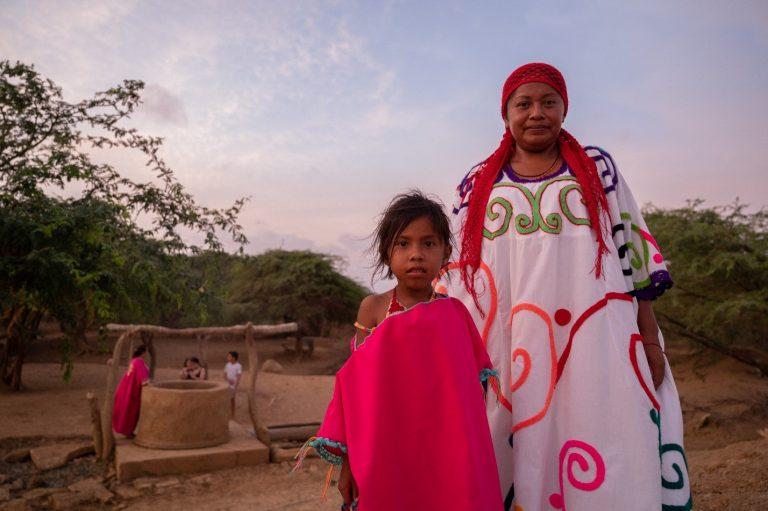During COVID-19, the Government of Colombia is using primary health care as one of the best strategies to both save lives and protect the customs and traditions of the Wayúu people who live in the remote Alta Guajira desert.
In the spirit of the Sustainable Development Goals and universal health coverage, all countries should strive to ‘leave no one behind’ in health care and in responding to COVID-19. Reaching groups like the Wayúu is crucial
The Wayúu people are able to access primary health care services and have the information they need to protect themselves and others against COVID-19 in ways that are aligned with their culture.
PAHO/WHO has supported and financed Alta Guajira health authorities to implement an intercultural health model with 16 indigenous community health workers who carry out surveillance and other essential health services.
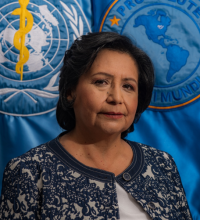
“With this project we want to strengthen the capacities of the basic health teams by incorporating 16 community health workers of the Wayúu indigenous people, who in their communities, must carry out community epidemiological surveillance, promote healthy lifestyles, monitor chronic diseases, assist pregnant women and children under 5 years of age and support risk management to prevent communicable diseases.”
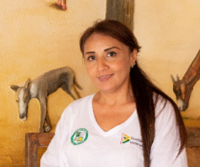
"This institutional and community link will improve access to health services, continuity of comprehensive care, the modification of the determinants of health, and the surveillance of public health events. Particularly, it will support the emergency response to and prevention of COVID-19 in these rural communities of Alta Guajira.”
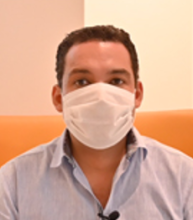
“The technical support of PAHO/WHO is much needed, especially as PAHO/WHO already has experience and succeeded in other territories of indigenous populations. Undoubtedly, the most important thing is to contribute to the achievement of health and well-being so as not to leave anyone behind during and after the pandemic.”
THE LONG READ
Under current COVID-19 guidance, all communities across Colombia are obliged to cremate people when they die, but an exception is made for the indigenous people of Alta Guajira. The Wayúu people’s beliefs and cultural practices around death are so important, that the Government now allows them to bury their dead underground or in a vault.
“The cremation of bodies is equivalent to murdering a dead person,” explained Dianely Cambar, a traditional doctor from the Alamalu, a community of Wayúu people in Siapana village.
The decision was made before COVID-19 reached the rural communities of Alta Guajira, who live in a vast desert of 8,200 square kilometres in 22,000 scattered hamlets. The population can only be reached by travelling 155 kilometres of unpredictable sand trails. Other indigenous groups live even farther away.
The Government took the decision to isolate the entire geographical region to protect the people, which of course raised its own problems, exacerbating the challenges the Wayúu already face.
With travel restricted and isolation measures in place, Colombia’s tourism industry has suffered. It is a vital source of revenue for many, including the Wayúu, who rely on sales of handicrafts for much of their income.
Meanwhile, the droughts that plagued the territory have dried up several sources of drinking water, and because of high tides, there had been less opportunities to fish. People are hungry, thirsty and short of funds.
Following Government instructions to protect themselves against COVID-19 is really hard for people living in Alta Guajira.
Moreover, with temperatures at over 40 degrees Celsius, wearing masks, which are already scarce, is uncomfortable. There is not enough fresh water for people to wash their hands regularly and it takes one hour on foot to reach water sources.
The health conditions which have always affected them – such as malnutrition, acute diarrhoeal disease, tuberculosis, acute respiratory diseases and maternal and neonatal deaths – continue.
For the Government, finding a longer-term solution for protecting against COVID-19 and providing essential primary health care services to tackle existing health problems close to home is paramount.
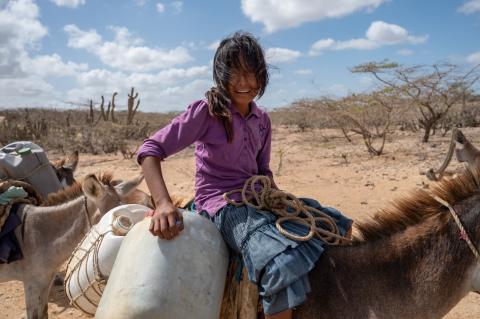
COVID-19 in Colombia
The first case of COVID-19 arrived in Colombia on 6 March 2020. However, by February, the country had already started to strengthen its surveillance system and national network of laboratories. It also doubled its capacity to provide health services, getting more equipment into hospitals and enough qualified health personnel to meet the population’s needs. Without the participation of the general public in terms of hygiene and self-protection, it would be impossible to stop the spread of COVID-19, leading Colombia to quickly call on its citizens to take action. The first step was a mandatory mass quarantine to reduce contagion, followed by a flexible quarantine phase with gradual de-staging, and this helped to mitigate the social and economic effects caused by the pandemic.
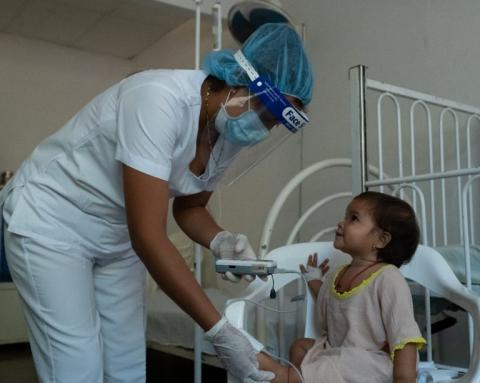
Building stronger health systems with the people
The Government has also moved to strengthen the health system in some regions where it is fragile. The Guajira region is one. Political instability for over two decades here has also resulted in gaps and lagging investments in the health sector. However, the situation is beginning to change. The Government has been working to establish a foundation to implement projects in Guajira and provide more effective health services, which currently comprise one hospital, five health centres and four health posts, supported by just two ambulances. As authorities move to strengthen the health system, they also need to address the cultural traditions of the Wayúu people.
It was clear that the best way to reach the Wayúu people was through primary health care services, located close to home, that connect and appeal to their own culture. The department and the local health authorities agreed to promote primary health care adapted to the characteristics of the territory and the current situation, and with the effective participation of the community. Along with better infrastructure, equipment and medicines, there is a call for trained health personnel with deep personal knowledge of the local Wayuunaiki language and cultural practices.
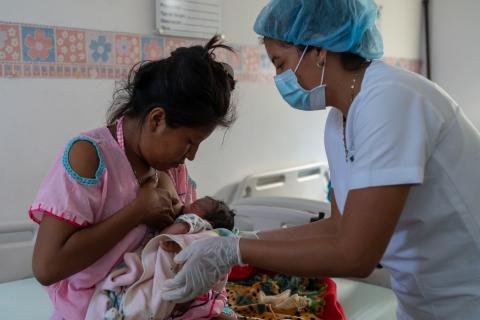
Implementing an intercultural health model
The Pan American Health Organization (PAHO)/WHO has supported local authorities to implement an “intercultural” health model with the Wayúu people. PAHO/WHO signed an agreement with the Public Hospital de Nazareth, an organization which provides comprehensive and quality health services in Alta Guajira, and has provided funding for the project.
This initiative is supported by the UHC Partnership, which assists 115 countries in accelerating progress to achieve universal health coverage (UHC) through funding provided by the European Union (EU), the Grand Duchy of Luxembourg, Irish Aid, the Government of Japan, the French Ministry for Europe and Foreign Affairs, the UK Department for International Development and Belgium.
“With this project we want to strengthen the capacities of the basic health teams by incorporating 16 community health workers of the Wayúu indigenous people, who in their communities, must carry out community epidemiological surveillance, promote healthy lifestyles, monitor chronic diseases, assist pregnant women and children under 5 years of age and support risk management to prevent communicable diseases,” said Dr Gina Tambini, PAHO/WHO Representative in Colombia.

The 16 community health workers are indigenous and immersed in the Wayúunaiki culture and way of life. They have been well-trained and equipped with basic tools to identify health risks and refer people to appropriate services. They also develop educational health plans with individuals, families and groups according to the customs of the community. Radio communication services have been developed to support the community health workers, as mobile phone reception is very poor in the area.
In COVID-19, as in any disease outbreak, risk communication is vital. All the health workers and other community leaders have been trained in risk communication through workshops, and have subsequently informed their communities about the different aspects of COVID-19 and how to prevent its spread. This was part of a larger campaign to disseminate key COVID-19 messages in the Wayúunaiki language, which was developed by the local authorities and supported by PAHO/WHO.
The indigenous health workers provide a vital link between the hospital, the health authorities and the community.
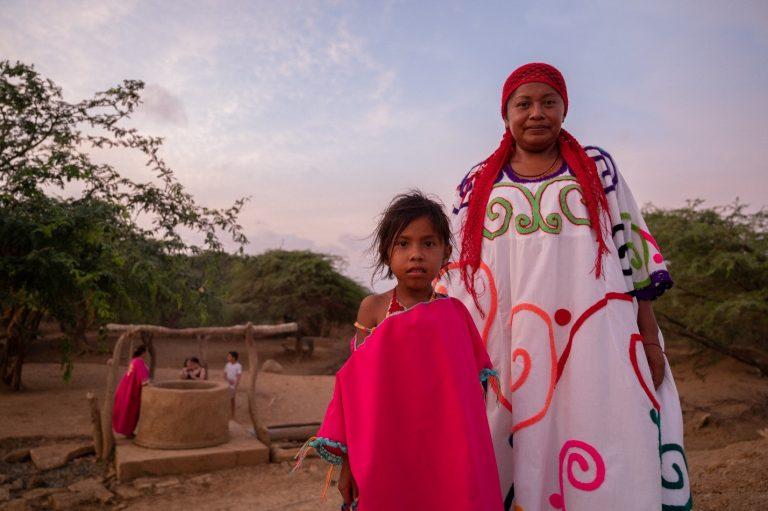
“This institutional and community link will improve access to health services, continuity of comprehensive care, the modification of the determinants of health, and the surveillance of public health events. Particularly, it will support the emergency response to and prevention of COVID-19 in these rural communities of Alta Guajira,” said Claudia Henríquez, Secretary of Ethnic Affairs of the Government of La Guajira, and one of the founders of the project.
“The technical support of PAHO/WHO is much needed, especially as PAHO/WHO already has experience and succeeded in other territories of indigenous populations. Undoubtedly, the most important thing is to contribute to the achievement of health and well-being so as not to leave anyone behind during and after the pandemic,” said Nemesio Roys, Governor of La Guajira.
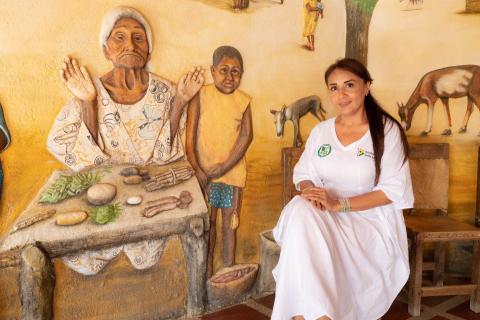
©PAHO/WHO/Karen González Abril
Leaving no one behind
Colombia is demonstrating how national commitment and international cooperation for UHC reaches people in the most remote and vulnerable communities. The Wayúu people are physically and geographically isolated from the rest of Colombia as the pandemic spreads through the country, but they are not left behind in efforts to deliver health for all.
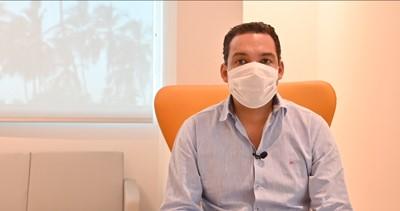
UHC means health for all
As the world is confronted with one of the most devastating health crises in history, Ukraine’s experience demonstrates the value of reforming health financing, service delivery and governance; the key areas, that set the foundations of health systems in all countries. In both ordinary and extraordinary times, UHC principles are at the core of keeping all communities healthy, safe and productive.
Related WHO work
Building sustainable preparedness
Colombia has a health emergency preparedness programme in place with full time staff and a specific budget to implement disaster preparedness and response plans. The country does simulation exercises routinely according to their preparedness plans.
PAHO/WHO will continue to work with Colombia in strengthening longer-term health emergency preparedness beyond COVID-19. Health security preparedness requires a robust cross-sectoral engagement and collaboration, and PAHO/WHO will continue to help address multisectoral preparedness coordination. This will support Colombia to develop and maintain sustainable capacities to prevent, detect and respond to future outbreaks, epidemics and pandemics.
